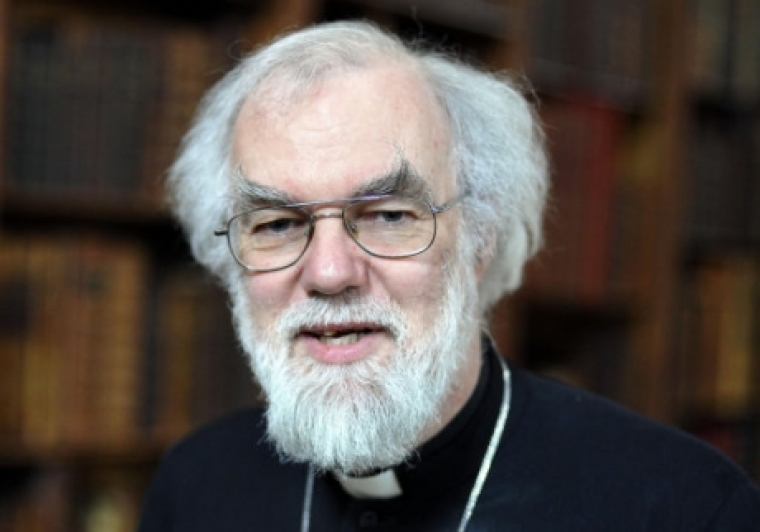
Speaking at a lecture hosted by the Theos thinktank in London last night, Dr Rowan Williams admitted some of his views had landed him in "hot water" but suggested it was his duty to speak out.
"I just don't think that it will do to be too cautious in a job like this," he said.
"As is true for any Archbishop, you are here to say what you believe you have been given to say, to try to share a particular picture of what the world is like, what God is like."
He said that speaking up publicly "sometimes leads you into risky and anything but infallible judgements about issues of the day but you have to keep trying to preserve the big picture".
In 2003, the Archbishop said he had "grave reservations" about the morality of the Iraq war during a service of remembrance at St Paul's Cathedral.
Then in 2008, he found himself at the centre of a row when he suggested that aspects of Sharia law should be incorporated into British law.
More recently, he stirred controversy for his attack on the Coalition's economic policies in an editorial for New Statesman.
The Crown Nominations Commission is considering who will replace Dr Williams when he retires as Archbishop at the end of the year.
His decade at the helm of the Church and the worldwide Anglican Communion has been marked by painful divisions over homosexuality and women bishops.
The Church of England General Synod is due to meet again in November when it will decide whether to pass a bill allowing women into the episcopate.
Despite the difficulties, the Archbishop defended his record.
Asked whether he had left the Church in a worse state than when he found it, he said: "I don't think so."
"There is no golden age in Christian history when you might think 'oh it was relatively problem free then' - I don't think that's true.
"When I've got problems I think 'at least it isn't the Fourth Century, at least it isn't the Seventeenth Century'."
Regarding homosexuality, Dr Williams said it was not the Church's intention to condemn people for their sexual orientation.
If people felt condemned for their sexuality, there could be a "serious mental health impact", he said.
"I hope this is not what the Church is doing and I certainly don't think it is what the church should be doing.
"It is not just the church it is also a climate of homophobia which still exists in our society, we still have work to do," he said.